Farmer to Farmer Conference
2025 Farmer to Farmer Conference
We’re currently in the process of planning for the 2025 Farmer to Farmer Conference. Check back this summer for more information.
Saturday, November 2 - Monday, November 4, 2024
Sugarloaf Resort, Carrabassett Valley, Maine
General Information About the Conference
MOFGA’s Farmer to Farmer Conference is known for its intimacy, in-depth treatment of topics and profound discussions. The conference offerings are based on the idea that farmers learn best from their peers and other practitioners. Conference speakers include prominent and accessible university faculty, extension educators and other agricultural professionals. Our unique workshop session format presents talks by both agricultural service professionals and farmers, and then opens up to a farmer discussion that explores both the unique and common experiences of everyone in the room.
Learn from and engage with speakers who are farmers and service providers, including peers and mentors from across Maine, Vermont, Massachusetts, Pennsylvania and more!
Please contact Anna Mueller with any questions you may have at (207) 568-6017 or [email protected].
Do you need any interpretive or translation services? Please contact Anna Mueller directly and let us know what language you will need translation for. Also contact Anna if there are any other barriers you face.
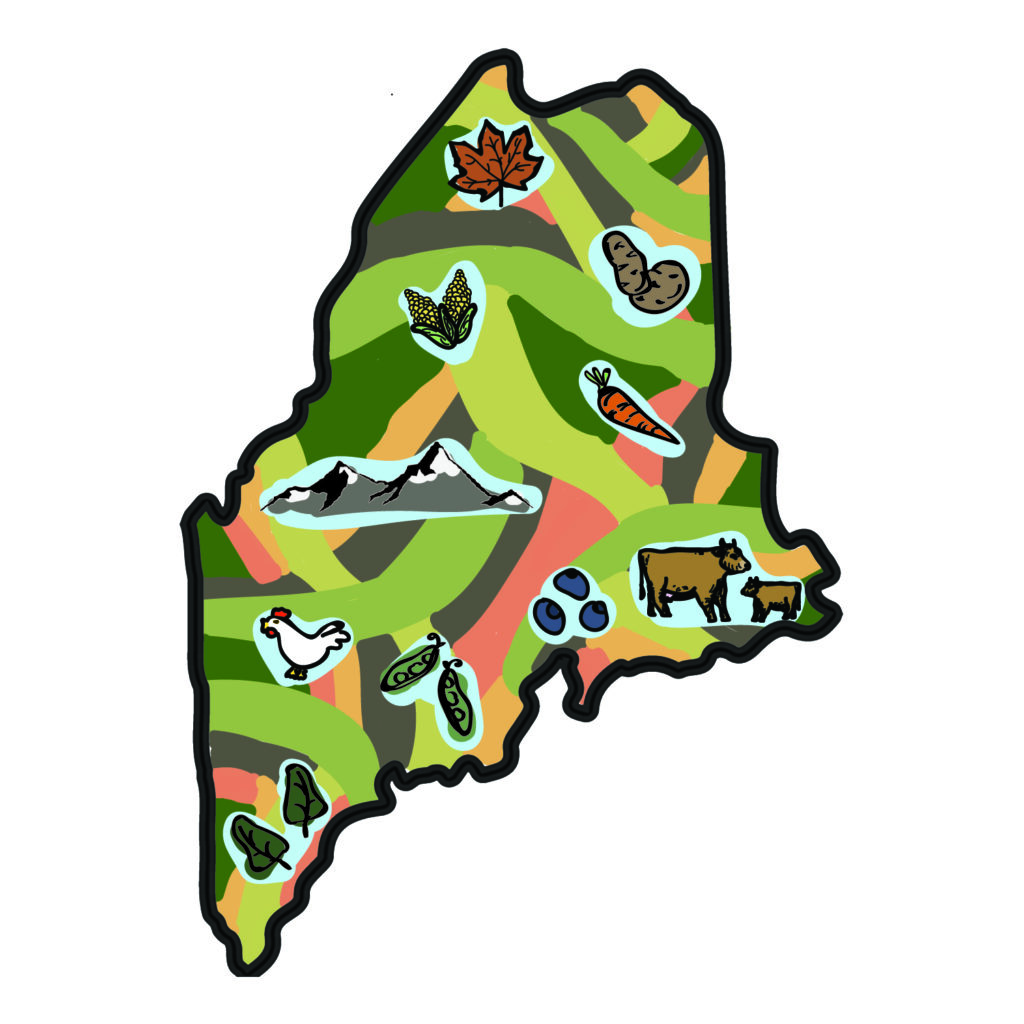
Registration Options
Early bird pricing through October 10th
Sessions will go up to $70 per session block
$190 for all sessions and keynote
- $160 for all sessions and keynote.
- $60 per session block.
- $345 for all sessions, keynote, and meals.
- $30 breakfast.*
- $33 lunch.*
- $59 dinner (taxes and gratuity included).*
- Thanks to UMaine Extension Health and Wellness Programs (Maine Farm Wellness, Maine AgrAbility and Maine Agricultural Mediation Program) we have a reduced rate for child meals for the first 15 children registered
- $10/ lunch and $15 for dinner
- Usually $29
* Cost per meal.
Free conference session registration available for:
- Dairy Farmers for Dairy Day – Monday, November 4th
- BIPOC Farmers
- Veteran Farmers
Exhibitors and Sponsors
We want to thank our sponsors and exhibitors from previous years and welcome new partners as we broaden the reach of our Farmer to Farmer Conference.
MOFGA’s sponsorship options include benefits such as a banner at the conference, acknowledgment of support before the keynote speaker, acknowledgement of support on social media, free conference registration, recognition on the conference website and verbal acknowledgement during the conference. Sponsorships support all aspects of the conference — from scholarships and sliding scale pricing to speaker compensation.
Interested in joining us as an exhibitor or sponsor? Please reach out directly to Anna Mueller for sponsorship levels and more information.
2024 Farmer to Farmer Conference Schedule
Thank You to Our 2024 Sponsors and Major Funders
Exhibitors and Sponsors
Gold Sponsors

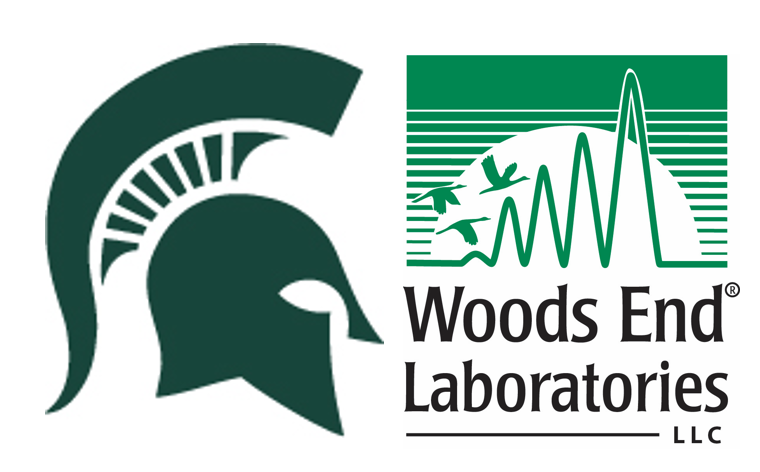
Other Sponsors
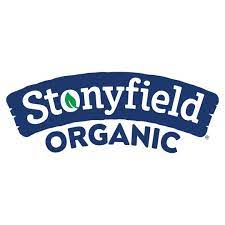
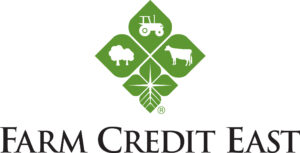

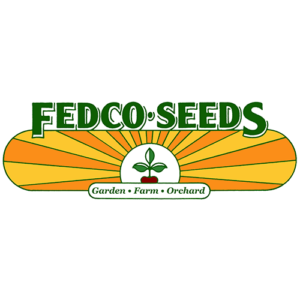

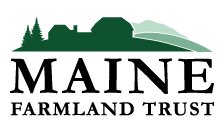

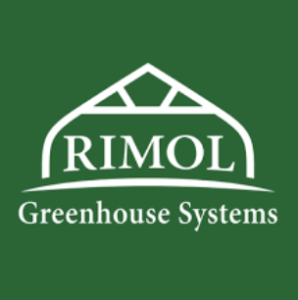



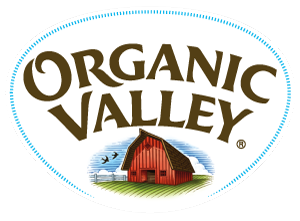


2024 Keynote Speaker
Monday, November 4 at 8:45 a.m.
Sugarloaf Resort, Carrabasset Valley, Maine
Nurturing soil, nurturing community:
Navigating growth while keeping your values close
with Natalie Childs and Caleb Langille of Agricola Farm
Papineauville, Quebec
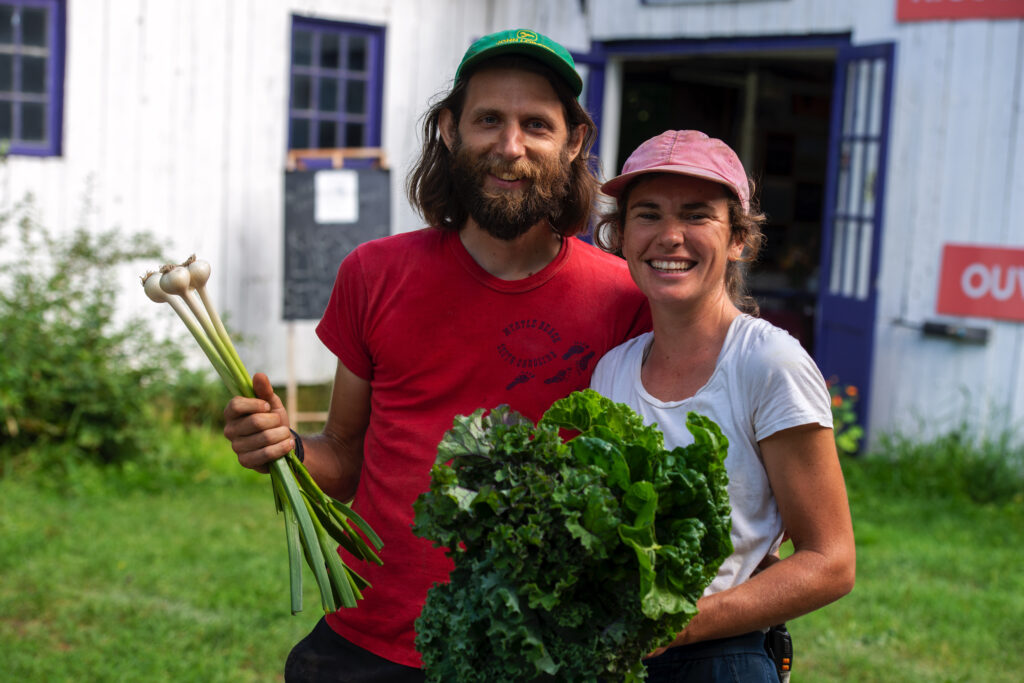
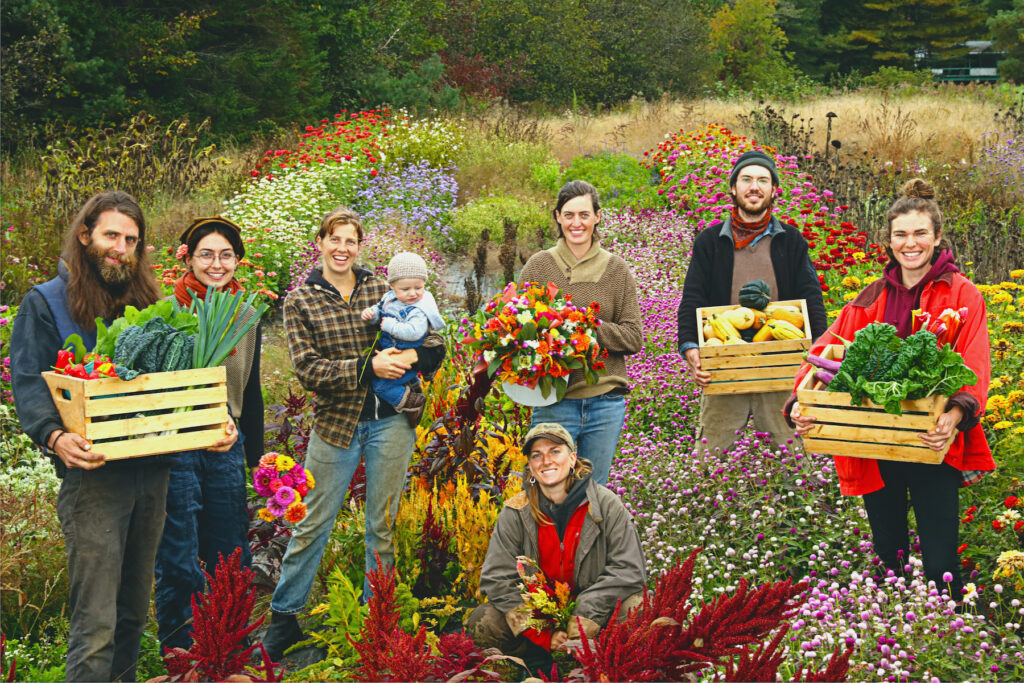
Members of Agricola Farm in Western Quebec will share their experiences from their startup phase of their worker’s cooperative, reflecting on how to navigate change, uncertainty and growth on the farm while still upholding core values and maintaining healthy relationships with your fellow farmers.
Natalie and Caleb will dive into the nuts and bolts of operating as a worker’s cooperative, including creating boundaries between personal life and work, integrating new cooperative members, adapting farm roles over time, conscious communication, and participation in a producer’s cooperative.
They will also share how their production practices have evolved when scaling from a 1-acre no/low-till plot to their current 12 acres of production, and how they have maintained a focus on nutrient-dense food and soil health while increasing mechanisation and adapting to a changing workforce.
2024 Farm Tour
Saturday, November 2
at 1 p.m.


Springside Dairy Farm Tour
November 2, 2024 at 1 p.m.
136 Holbrook Rd.,
New Vineyard, ME
Randall and Jill Bates, owners of Springside Farm in New Vineyard, ME have been certified with MOFGA since 2005. They manage 50 milkers, 10 dry cows, and 16 heifers. They have been working hard over the years to improve their land for grazing, and are currently rotationally grazing 15 paddocks, while keeping 4 extra paddocks to account for climate change.
In addition to the working dairy, Randall keeps a farm implement museum that catalogs how agriculture has changed in the last century. He and Jill are knowledgeable tour guides for anyone interested in a little history after the initial farm tour.
2024 Walk & Talk with Farmer Programs
Saturday, November 2
at 3:45 p.m.
Take a gentle 1-hour hike on Carrabassett Valley’s Narrow Gauge Pathway
November 2, 2024 meet at 3:45 p.m.
Hike begins promptly at 4 p.m.
Meet at the Trailhead Parking on Campbell Field Road (2 miles from Sugarloaf)
Join Caleb Goossen, Bo Dennis and Meg Mitchell of our Farmer Programs team for an easy hike following the stunning Carrabassett River. This hike is on an old rail road bed, so it is a flat and straight walk. Bring your questions or just chat with Farmer Programs and your fellow farmers before settling into Sugarloaf for the conference!
No registration required, just show up on time!
Conference Sessions
Sunday, November 3 - Monday, November 4
Sugarloaf Resort, Carrabasset Valley, Maine
Sunday Morning Sessions
9:30 a.m. - 12:30 p.m.
Lindsay Werner, DACF; Facilitated by Chris Callahan, University of Vermont (UVM)
Lindsay Werner from the Maine Department of Agriculture, Conservation and Forestry will present a how-to for farm food safety plan basics focusing on diversified farms and integrating U.S. Department of Agriculture (USDA) Agricultural Marketing Service (AMS) Good Agricultural Practices (GAP) audit requirements for the General Questions, Part 1, and Part 2. Template examples will be available. There will be hands-on time for those interested in working on building out their plans and/or receiving feedback.
Gregory Witscher, Understory Farm; Angela Baglione, Seek-No-Further Farmstead
In this session, we’ll hear from several farmers about how they’ve approached decision-making to prioritize farmer well-being. Practice makes progress, and we’ll hear from these farmers about their lifestyle goals and the myriad of approaches they’ve taken to get closer to balance.
Dan Brisebois, Tourne-Sol Co-operative Farm
With a good spreadsheet by your side, you can plan your crop successions so you can provide a steady supply of crops for your farmers’ markets and Community Supported Agriculture (CSA) baskets. Come and walk through a simple yet thorough crop planning spreadsheet system to set your financial goals, your sales plan, your field plan, and your nursery plan. We will explore the nuts and bolts of PivotTables and how to get the most out of your spreadsheets.
Kate Turcotte, Land For Good
Join Maine’s field agent from Land For Good and a panel of three farmers that lease land to discuss the dynamics of leasing land. We will explore the elements of a good lease and leasing relationship, considerations for financial planning in accessing land, and the ways leasing land may influence farming practices. While designed for farmers that lease land to connect around these issues, farmers that are interested in leasing land to other farmers are also encouraged to attend.
Bruce Hoskins, Maine Soil Testing Service; Becky Maden, UVM Extension
Join Bruce Hoskins from the Maine Soil Testing Service and Becky Maden from UVM Extension as we delve into the complex interplay between climate variability and soil fertility, including how heavy precipitation impacts the availability of crucial nutrients like nitrogen, potassium, boron, and sulfur in the soil. Gain practical insights and strategies to mitigate these challenges, ensuring optimal nutrient management for resilient crop yields in a changing climate.
Eli Hersh and Valerie Woodhouse, Honey Field Farm
In this workshop, Valerie Woodhouse and Eli Hersh will share the ins and outs of the certified organic veggie start production at Honey Field Farm in Norwich VT. Follow along the process from planning the season to sowing seeds, growing healthy plants and establishing relationships with retail and wholesale customers. Topics will cover time and labor management, sourcing supplies, training and standard operating procedures, Integrated Pest Management, marketing, opportunities, challenges and risks.
Dr. Lily Calderwood, UMaine Extension; Ron Howard, Brodis Blueberries; Nicolas Lindholm, MOFGA and Blue Hill Berry Co.; Peter Jordan
This session will cover the how’s and why’s of mulching whole wild blueberry fields with wood chips, with growers speaking about what they’ve observed and learned from applying mulch as well as navigating the Natural Resources Conservation Service (NRCS) funding that’s available for mulching. Dr. Lily Calderwood from the University of Maine Extension will cover the reasons to do so, including the soil/moisture moderation that it offers to mitigate climate change challenges.
Noami Brautigam and James Gagne, Second Frost Farm; Nate Drummond and Gabrielle Gosselin, Six River Farm; Megan and Pheonix O’Brien, Hall Brook Farm
In this session, we’ll attempt an in-depth and honest discussion around farm financial analysis and reality. There have been many new challenges of late, from the COVID-19 pandemic to PFAS chemicals to climate change, such that many farmers, experienced and new, have voiced strong interest in talking about oft uncomfortable or even “proprietary” knowledge and experience, like “how do you take a decent owner’s draw”; “what does a financially healthy farm look like”; “what level of sales is needed to support significant and necessary infrastructure and equipment investments”; and “how much money does one need to gross farming to make a reasonable family income”? Second Frost Farm, Six River Farm, and Hall Brook Farm have all stepped forward to share their insights and open the door for peer-to-peer conversation on how different farms likely have different answers to these questions, but we also likely share a lot of common ground across the different levels of experience, growth, markets, geographic regions of the state, and confidence in farm financials.
Sunday Lunch Discussions
1:30 - 2:30 p.m.
Facilitated by Bo Dennis, MOFGA
This conversation space is for farmworkers to connect with each other and learn about resources available to Maine farmworkers.
Facilitated by Meg Mitchell, MOFGA
The Transition to Organic Partnership Program (TOPP) offers opportunities for both farmers who aspire to certify as well as experienced certified organic producers. Whether you have questions about a pathway to certification or you are interested in being a paid mentor for someone in transition, show up here to learn more.
Sunday Afternoon Sessions
2:30 - 5:30 p.m.
Speakers TBA
Back for a second year, this is a similar session as the conversation held at the 2023 Farmer to Farmer Conversation. Farm labor has been hard to find in recent years and even more difficult to keep from year to year. Come hear a panel of farmworkers share their experiences about what has made them stay or leave a farm. We will then discuss the common barriers to long-term farmworker retention, like workplace culture, benefits, and pay scales. Bring your questions and curiosities to learn from each other and directly from farmworkers.
Eliot Van Peski, Meadowsweet Farm; Sy Schotz, Fat Ash Stump Sprouts
Eliot Van Peski and Sy Schotz have been pasturing ruminants in Maine with the intention of improving the land and forages to maximize production. They both bring extensive learning, observation skills, and hands-on experience to this discussion around managing and reinvigorating pastures while actively grazing ruminants. Additionally, Schotz has experience with livestock guardian dogs as well as a small flock of poultry. Join this discussion for some insightful information on regionally managing pastures.
Dan Sullivan, Broad Arrow Farm; Flora Brown, Frinklepod Farm
Farm stores are a great way to bring your sales home and reduce your dependence on wholesale accounts and farmers’ markets. Hear from Broad Arrow Farm, which owns and runs a farm market, custom butchery, and charcuterie bar, and from Frinklepod Farm, which operates a farm store that offers an on-farm food and grocery experience that serves as a gathering hub for the community.
Christa Alexander and Mark Fasching, Jericho Settlers Farm; Vern Grubinger, UVM Extension
Join Christa Alexander and Mark Fasching of Jericho Settlers Farm and Vern Grubinger from UVM Extension in a discussion of high tunnel tomato production infrastructure and operating systems, from low tech to fairly high tech. We’ll explore the costs, benefits, pros and cons of investments in large vs. smaller tunnel structures, shade cloth, automated irrigation, automatic roll up sides, bottom heat, ridge vents, gantry on rails, environmental controllers, and more. Bring your own data and experiences about what worked well on your farm and what didn’t.
Spencer Blackwell from Elmer Farm; Bruce Hoskins, Maine Soil Testing Service
Explore the frontier of soil fertility management in low- and no-till farming systems with Bruce Hoskins from the Maine Soil Testing Service and Spencer Blackwell from Elmer Farm. Consider cutting-edge deep mulching techniques. Learn practical insights on taking soil samples tailored to unconventional farming methods, ensuring actionable results that enhance your farming efficiency and sustainability.
Rachel Schattman and Sara Keleman, University of Maine Agroecology Lab; Ryan Fitzbeauchamp, Evening Song Farm
Join a session on holistic resilience for a changing climate in which Dr. Rachel Schattman and Sara Keleman of University of Maine’s Agroecology Lab will get into the weeds about climate adaptation planning. We’ll review field-tested tools for risk assessment and planning, and also hear reports from Ryan Fitzbeauchamp of Evening Song Farm about how he used these tools to prioritize adaptation strategies on his farm.
Dr. Jennifer Perry, UMaine, School of Food and Agriculture; Ron Howard, Brodis Blueberries; Lindsay Werner, DACF; Facilitated by Chris Callahan, UVM
This session will focus on what’s known from the current UMaine study of the risks of pathogens on fruit from the harvest through the fresh-pack line, and SOPs for cleaning and sanitizing our harvest and processing equipment in light of the UMaine study’s findings. The goal is to help us all with the onset of Food Safety Modernization Act (FSMA) regulations and heightened awareness of food safety with a crop that is harvested from fields that typically have a great degree of wild animal incursion and no kill step for pathogens for the final food product.
Facilitated by Erica Emery, Rustic Roots Farm and Kate Turcotte, Land For Good
Need some time to work on your farm business? Would a quiet space working separately but
with other farmers be helpful? Do you want to connect with another farmer about some aspect
of your farm business? This first ever co-working session at the Farmer to Farmer Conference will be the place for all that and more! The first half of this session will be dedicated to solo work time. Clear your inbox, write up an SOP you need, peruse a seed catalog, get caught up on your accounting, or whatever you need to do. For the second half of the session, participants will choose their own adventure! Continue working solo if you are in a groove, ask the group for help with something you are working on, or offer up a skill or knowledge you would be willing to share with others one on one or in a small group.
Monday Morning Sessions
10 - 11:30 a.m.
Eli Hersh and Valerie Woodhouse, Honey Field Farm
Eli Hersh and Valerie Woodhouse started Honey Field Farm in 2020 at the home of legendary Killdeer Farm in Norwich VT. Hear how they used their markets and experience from their part-time 2 acre incubator farm to grow their business sales over 13,000% in the first 4 seasons at their new location. Topics include incubator business models, opportunities and challenges with turnkey operations, and managing rapid growth with cash flow, labor, market channels and business planning.
Christa Alexander and Mark Fasching, Jericho Settlers Farm
Join Christa Alexander and Mark Fasching of Jericho Settlers Farm in a deep dive of organic salad greens production, from small to multi-acre scales, in both field and high tunnels in all seasons. We’ll discuss everything from production planning to bed prep to seeding, weed control, harvest, washpack and marketing. Christa and Mark have been growing greens for wholesale and retail markets for over 20 years, including 15 years of winter growing lessons-learned.
Join us for an open, comfortable, and facilitated space for parents who farm. Hear from others who know the juggle and the struggle. We will hear about things that have worked… and some epic fails.
Dan Brisebois, Tourne-Sol Co-operative Farm
You can grow seed on your farm. It’s easier than you think. In this session we’re going to start with the seed biology basics to keep you from getting into too much trouble. We”ll dive deeper into a few crops to show you how you integrate seed production into a vegetable or cut flower farm. And then we’ll get into the power of selecting your seed plants and how you can adapt varieties to your farm and even create new varieties!
MOFGA Certification Services (MCS)
Strengthening Organic Enforcement (SOE) is a significant rule change to the USDA organic standards. This session is meant to inform and provide a space for producer discussion of the new rules with MCS staff.
Annie Watson, Sheepscot Valley Farm; Jacki Martinez Perkins, MOFGA
The cost to produce organic milk is the tip of the iceberg when it comes to financial considerations for Maine dairy farmers. Please join us to discuss the financial implications around the various aspects of making dairy a viable business enterprise for the future.
Leah Boyd from Clarity Services with Sylvie Boisvert and Leslie Forstadt, Farm Coach & FRSAN
Abbie McGilvery, From The Nest; Emily Springer, Meeting House Herb Farm
During this session, Abbie McGilvery, marketing coach and social media strategist, and Emily Springer of Meeting House Herb Farm will share how they work together to coordinate social media for Meeting House Farm’s herb grower collective. They will discuss what types of content they create, what has worked best, how they plan throughout the year, and share stories about things that have “gone wrong” along the way. This interactive workshop will be full of tips and tricks for building visibility and engagement, with ample chances to ask your own social media and marketing questions.
Cynthia Flores, Labor-Movement
During this session, we will discuss health + wellness from an athletic perspective with tips on managing food, fluid, sleep and stress for best performance. Additionally, we’ll talk about self-advocacy during work and practice high use movements and variations related to repeated bending, lifting, and lowering.
Monday Lunch Discussions
12:30 - 1:30 p.m.
Facilitated by Bo Dennis, MOFGA
If you are in the midst of starting a farm business, this conversation space is for you! Come connect with other farmers in a similar stage as you and learn about resources here to support you.
Monday Afternoon Sessions
1:30 - 3:00 p.m.
Emily Springer, Meeting House Herb Farm
Over 80% of the dried herbs sold in the United States are grown in Europe or Asia. In 2023, the overall herbal market in the United States was $199 billion dollars. This means that U.S. farmers are missing a huge opportunity to diversify their revenue stream while adding biodiversity to their farms. Imported herbs lose quality quickly. Quality U.S.-grown herbs are in high demand.
Join Emily Springer of Meeting House Herb Farmto learn which herbs grow well in New England, which ones have solid market value, and many other tips for plant vitality, drying, storage, and market.
Facilitated by Bo Dennis, MOFGA
This interactive session will be a reflective process of looking back on the 2024 growing season and looking forward. Leave with goals to bring you into 2025. How are your farming goals fitting into your larger quality of life goals? What big decisions are looming and how can goal setting support you in moving through those? You will practice some decision-making tools, share in small groups, and leave feeling energized about what comes next for your farm.
Tristan Noyes and Paul Pollaro, Maine Grain Alliance
In the regions where cereal grains originate, you’d be hard-pressed to find wild wheat without barley growing alongside it. This is hardly surprising –– grain mixtures (i.e., maslins) can use resources more efficiently, better tolerate changing climates, and minimize the impact of pests or pathogens. Tristan Noyes and Paul Pollaro of the Maine Grain Alliance will provide an overview of the numerous benefits of maslins for grain growers and best practices for implementing this cropping system in your fields. Additionally, the discussion will include preliminary results from maslins trials undertaken in Maine.
Allan Fortin, Independent Dairy Nutritionist
Allan Fortin is an independent dairy nutritionist who has worked with New England dairy farms for decades. He is skilled at ration balancing while cows are on pasture and is highly supportive of incorporating varieties of fermented small grain as forgages into rations to help replace grain costs. Join this talk to learn more about alternative strategies to buying grain concentrates.
Facilitated by Leslie Forstadt, Farm Coach & FRSAN; Lucy Wess, and Bella Russo
Conflict is often portrayed in a purely negative light, but healthy conflict can result in understanding, learning, and growth. Beginning in the early 1970s, researchers Kenneth Thomas and Ralph Kilmann identified five conflict-handling styles: competing (shark), collaborating (owl), avoiding (turtle), accommodating (teddy bear), and compromising (fox). To illustrate these styles, they selected “representative animals” based on various traits within each style. This framework is not based on identifying “good, bad, right or wrong” conflict styles; it’s a strengths-and-weaknesses model that explores the varying approaches humans take when we deal with conflict.
Sean Horan, NRCS Climate Smart; Carrick Gambell, NRCS Urban Agriculture; Pheonix O’Brien, Hallbrook Farm; Farmer Speaker, TBD
In this session, we will hear from Natural Resources Conservation Service (NRCS) employees about the exciting opportunities currently being offered by the USDA for urban, small-scale, and organic land stewards. We’ll also hear from several farmers who have engaged with these practices and programs about their challenges and successes.
Facilitated by Heather Spalding and Bill Pluecker, MOFGA
MOFGA has had a clear focus this past legislative session on supporting organic farmers and farmworkers. From the state’s response to PFAS chemical contamination to increasing infrastructure grants for our industry, MOFGA has been a leader in the conversation. As an organization confronting the climate, labor, processing infrastructure, and development challenges of farmers and the industry in the state, how should we be leading the way for organic farms and the entire agricultural industry in 2025?
Nicolas Lindholm, MOFGA and Blue Hill Berry Co.; Catherine Durkin, Maine Farmland Trust and Calyx Farm
We want to help you see how farm financial spreadsheets can be utilized as tools for assessing risks or challenges as well as opportunities or investments. Catherine Durkin and Nicolas Lindholm, who are both farmers and farm financial service providers, will talk real talk about how they’ve built parts of their farm financials to guide them in good decision-making when it comes to challenges (like experiencing spikes in input costs and raising our own prices) as well as opportunities (like financing and building a new pack shed). In the same vein that cover cropping can help a farm mitigate soil erosion, we want to show how a spreadsheet can help mitigate market and economic risks or opportunities.
Returning this year we will once again feature an open mic and Cabbage (MOTH) Hour on Sunday night after dinner in the King Pine room. Bring good humor, stories or music to share and sit back and enjoy an evening of fun.

Childcare
*New Changes this Year!
Register through Sugarloaf for kids 18 months – 5 years old (their childcare fee is $30 for the full day but includes lunch).
Register through our general registration form for kids 6+ years old (our fee is $20 per 2 sessions in a day, remember to sign up for child lunches).
Please reach out to Anna Mueller with any questions or specific situations.
Accommodations
5092 Sugarloaf Access Rd.
Carrabassett Valley, Maine 04947
1-800-THE-LOAF
Please call 1-800-THE-LOAF to speak with a reservation agent and let them know that you are staying for the Farmer to Farmer Conference to receive our conference rate.
Nightly Rates: Rooms are $135 (standard) – $145 (single queen) – $155 (double queen)
The total prices with taxes & resort fees included are: Hotel Alcove (Standard): $164.44 per night; Hotel Superior 1 queen: $176.64 per night; Hotel Superior 2 queens: $188.81 per night.
Relax in comfort at the Sugarloaf Mountain Hotel, conveniently located in the heart of the Sugarloaf Village. With a design inspired by classic New England farmhouses, the Sugarloaf Mountain Hotel evokes the warmth of rustic mountain lodge with the convenience of a modern world-class resort.
- Enjoy a warm hearty breakfast or dinner in 45 North, conveniently located just off the lobby.
- Indulge your muscles after a day on the slopes in the 30-person outdoor hot tub.
- Home of the Sugarloaf Conference Center, voted “Best in the East” by Meetings East Magazine.
- Hotel Health Club with sauna, steam room, and fitness area.
- Nicely appointed rooms featuring luxurious Boyne Beds.
45 NORTH
Meet up for dinner on Saturday night before the conference and relax in style at 45 North, located just off the lobby at the Sugarloaf Mountain Hotel and serving breakfast and dinner daily. Enjoy custom crafted cocktails and local beers in the welcoming pub, or sample a Chef-driven menu featuring fresh, locally sourced ingredients creatively prepared to highlight the best of Maine’s harvest.
Things To Do in the Area
Area Restaurants
-
- 45 North – Breakfast: 7am – 10pm; Dinner: 4pm – 8pm
- The Rack – Sunday: 4pm to 9pm; Closed Monday- Wed
- Mas Amigos – 4pm – 9pm; Closed Monday – Wednesday
- Dellies – Open daily from 8-3pm
Activities for the Whole Family
- Bigelow Field Bison Farm, located on the Kennebago Road on Rt. 16 heading from Stratton to Rangeley. “It is beautiful and really neat to see.”
- Sugarloaf Mountain Hotel hot tub and the sports and fitness center are open and the Narrow Gauge Trail is great to walk on — find all the things at Sugarloaf – Maine’s Biggest Ski Resort
- Getting a day-pass at the Anti-Gravity Complex with trampolines,climbing wall, skate park, gyms and courts
- Maine Huts and Trails
- Reed Brook Falls is a super easy and kid-friendly hike
- Rangeley Gnome Home Roam
Scholarship Opportunities
We have various scholarships available especially for women farmers, veteran farmers and BIPOC farmers. Apply here for a scholarship by October 15th!
It is impossible to predict what, if any, COVID-19 restrictions or protocols will be needed in the future weeks.
With that said, we will be working with and following the guidance of state public health agencies and departments to ensure that the event is considered safe.
Although currently not required, all registered participants should be prepared for the possibility of:
Social Distancing
Masking indoors
Masking in crowded places
Providing proof of a negative COVID-19 test
We are very hopeful that this conference can be held restriction-free and will reimburse conference fees if requested due to any changes in our policy.
Our sliding-scale registration fee allows us to offer more access to our events. Please pay the amount that fits your budget. Paying more than the suggested rates will help support the conference registration fees for someone who is unable to pay that cost. The suggested general registration fee is $60.
Thank you!
If you’d like to be considered for a scholarship fill out this application by Friday, October 29, 2021.
